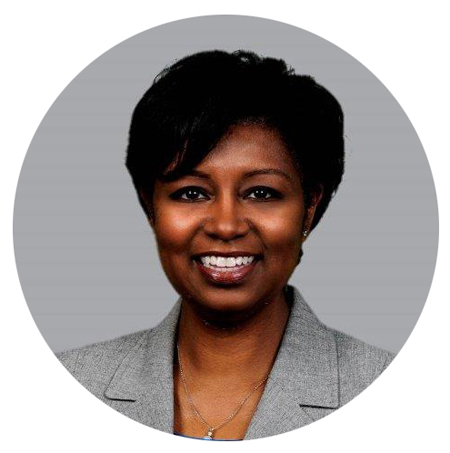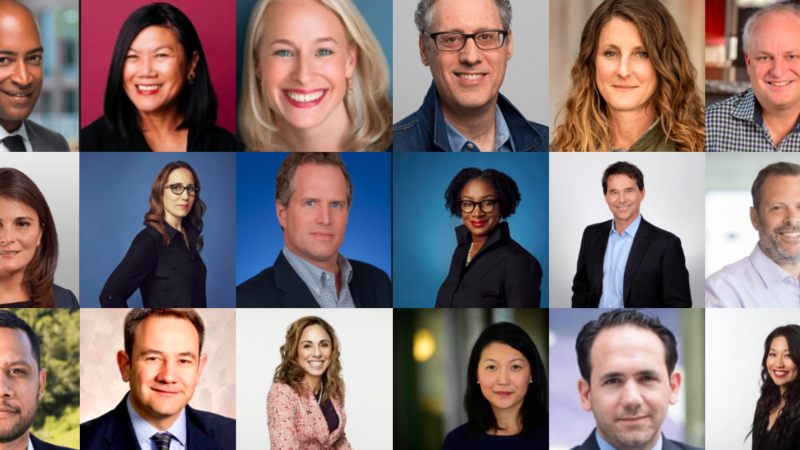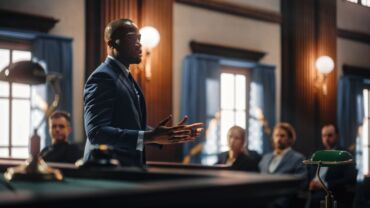In the new Upfront & Personal, we speak to Tonya Robinson, GC at KPMG, about how she's leaning into her firm’s values & culture during this time of crisis
We continue our monthly feature, Upfront & Personal, a column created by Rose Ors that brings “the person behind the title” to the forefront in interviews with some of the most influential members of the legal community.
Tonya Robinson, Vice Chair and General Counsel at KPMG, spoke with Ms. Ors, the CEO and Founder of ClientSmart, about who inspires her, the value of being genuine, and why it’s so important to lean into her firm’s values and culture during this time of crisis.
Rose Ors: What are you most proud of about the way you lead your life?
Tonya Robinson: I am quite blessed to have inherited a strong work ethic and keen sense of fairness, both traits that I value greatly, but am equally proud of my genuineness. I pretty much show up the same way with everyone. By that I mean I am the same person whether I am with KPMG’s Chairman and CEO, members of my legal team, or family and friends. It is very important to me that I bring my authentic self to every interaction. I have found that being my true self — and being true to myself — reaps many personal and professional rewards.
Rose Ors: How easy has that been to do?
Tonya Robinson: At home and in personal relationships, it always has been easy just to be me. If I’m being honest, at work, it has been a process, with me always being very comfortable with who I am and my story but over time growing more confident, and even adamant, about sharing that story openly in the workplace.
I have a very vivid recollection that illustrates the point and was a real “a-ha” moment for me. My former law firm hosted a panel on work-life balance that included lawyers from different corners of the profession, including at law firms and in-house. One of the panelists shared the tricks that she’d employ to be able to attend parent-teacher conferences, school plays and soccer games, sometimes held during working hours, with no one at the firm knowing.
Hearing her describe her approach struck a nerve for me. I did not want to employ tricks and tactics to navigate work and family life. I promised myself that, no matter the balancing challenges I would face when I started a family, I would do so in plain sight. I have kept my promise.
I also made another decision not so long after that day. I decided that I was not going to spend my energies trying to fit a mold at work. I was going to be me. It’s a curious thing, that decision to focus less on blending in, and more on just showing up as myself, unlocked a heap of energy and creativity that I could re-direct to honing my craft. I could bring my unique experiences and viewpoints to the problems I was charged with solving at work, and the outcomes were improved because of it. I was a better lawyer, a better problem-solver, and a better colleague.
Rose Ors: Who inspires you?
Tonya Robinson: I have a few inspirations, but first among them is my 12-year old daughter. I am inspired by the way she views the world. I have run through life with a sense of urgency — somewhat Type A, I have to admit. My daughter — who is thoughtful and creative and also impatient in her own way — brings out those very characteristics in me. I’m smarter, more imaginative and eager because of her, and because I see myself through her young eyes.
Rose Ors: How so?
Tonya Robinson: I’ll share an example that had a deep impact on me. It must have been four or five years ago. We were sitting around the kitchen table doing arts and crafts and she is trying to teach me how to make tissue paper flowers. While she was furiously fidgeting with the petals, she glanced my way and says: “You know, mommy, the trick to doing this is messing up.” Her declaration hit me hard. And she was right — the trick was to avoid being overly concerned with creating the perfect flower, and instead tug on the paper petals and even be a little messy. It made me realize I too needed to get comfortable messing up, venturing outside my comfort zone. You have to put yourself in a place where you’re stretching yourself. It is not enough to do only those things you can do perfectly with your eyes closed.

So, what came out of that afternoon at the kitchen table with my wise daughter was this: If I want to develop professionally, if I want to help develop others, I need to create the space for myself and my team where messing up is ok. We should look forward to doing things we have never done before even if the first several times we struggle to get it perfectly right.
Rose Ors: How important is this openness to change for your team at KPMG?
Tonya Robinson: It is very important. Parts of our business undergo reinvention frequently. Our business-side colleagues are innovating and finding new solutions for clients’ needs all the time. That means that the lawyers on my team are constantly facing novel business opportunities and challenges. In this very dynamic environment, the lawyers who are most comfortable with a measure of discomfort will really thrive.
Rose Ors: How are you leading your legal team during this unprecedented and fragile of times?
Tonya Robinson: These are indeed unprecedented and challenging times for everyone. For us, it’s more important now than ever that we lean into our values and our culture, which prioritizes the well-being of our people and support for our clients and community above all else. We continue to work hard, and that means pulling together, supporting one another, listening and responding to the needs of our teams, and being open to new ways of working. I’m so proud of my colleagues, who have demonstrated great resilience and continued to provide high-quality and caring service through it all.
Rose Ors: Who else inspires you?
Tonya Robinson: My mother inspires me. The memory of my maternal grandfather inspires me. I continue to marvel how they were able to give me so much when they had so few resources. They’ve made some pretty significant sacrifices in order for me to have the big opportunities I enjoyed. I am both grateful and inspired.
They also instilled in me a sense of family and family values that have grounded me and that I bring with me wherever I go. There is an Alice Walker poem that poignantly expresses how “her mama’s generation” “knew what we must know without knowing a page of it themselves.”
My grandfather and my mother knew what I needed to know to navigate the world in which I am operating now, even though that was not their own experience. They taught me to show up in the world confidently, proudly, and with kindness and respect for everyone. How they knew what I must know. That’s inspiration.
Rose Ors: What person would you most want to have over for dinner?
Tonya Robinson: I would invite my maternal grandmother. She passed away when my mother was no more than 15. Even though I never met her, I have always known that my story is inextricably bound to hers. Having the chance to talk with her would be illuminating. It would allow me to fill in the pages. I would want to know her aspirations, her and my grandfather’s love story, what she loved most about her life in rural North Carolina, what made her sad… so many questions.
I would also invite Toni Morrison. When I read her book, The Bluest Eye, I wept. It made me see my own experience in a different way. It made me see the world in a different way.
Rose Ors: I also love Ms. Morrison. Her ability to choose words that come together as in a song is sublime. It gives me chills.
Tonya Robinson: You’re so right. To describe her writing as a song perfectly describes her work. It does have that character. It’s lyrical, and moves you in a way music would.
Rose Ors: Let’s close by moving from the poetic to the prosaic. Outside of legal acumen, how can outside law firms add value to corporate clients in your view?
Tonya Robinson: We are looking for our outside law firms that are prepared to invest in building a strong relationship with us. We need them to understand who we are, understand what we do, and what we value. We’re looking for partners. We hosted our first ever outside counsel summit in 2019 and a huge part of those conversations were around supporting one another, building the relationship.







